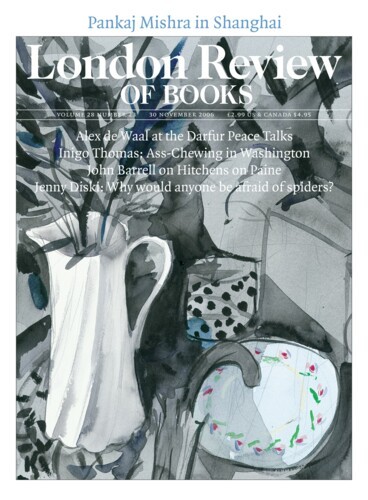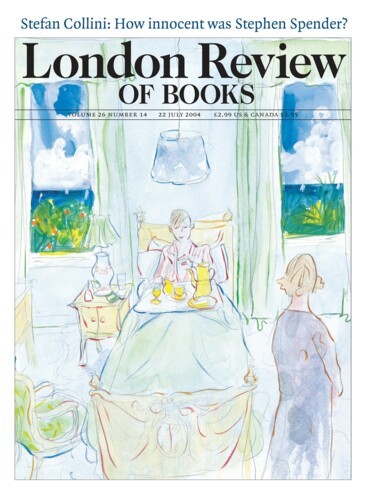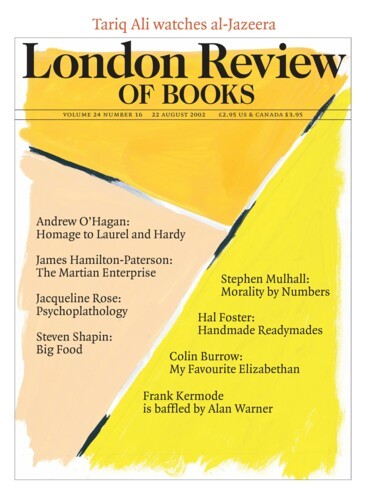David Wootton
David Wootton’s Bad Medicine: Doctors Doing Harm since Hippocrates will be published by Oxford in June. He teaches early modern history at the University of York, where he is an Anniversary Professor.
Where are Gracie and Rosie?
22 July 2004
Where are Gracie and Rosie?
22 August 2002
Brutish Babies
11 November 1999
The Agathocles Story
22 August 1996
Pieces about David Wootton in the LRB
Such Matters as the Soul: ‘The Invention of Science’
Dmitri Levitin, 22 September 2016
On 11 February, David Reitze, executive director of the Laser Interferometer Gravitational-Wave Observatory (Ligo) in the US, announced that his team of almost a thousand scientists had...
The Strangest Piece of News: Galileo
Nick Wilding, 2 June 2011
In the winter of 1609-10, Galileo Galilei made a series of astronomical observations that added to the growing list of anomalies threatening the stability of the earth-centred Ptolemaic cosmos....
Possessed by the Idols: Does Medicine Work?
Steven Shapin, 30 November 2006
Historical progress is back, even if it was only in some genres of academic history that it ever went away. It’s been some time, certainly, since historians of art saw painting as a...
Read anywhere with the London Review of Books app, available now from the App Store for Apple devices, Google Play for Android devices and Amazon for your Kindle Fire.
Sign up to our newsletter
For highlights from the latest issue, our archive and the blog, as well as news, events and exclusive promotions.





